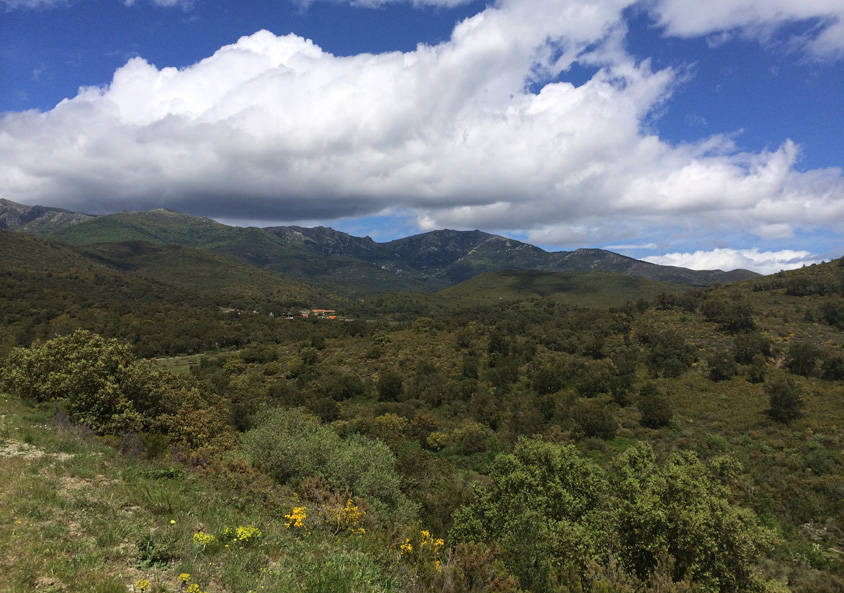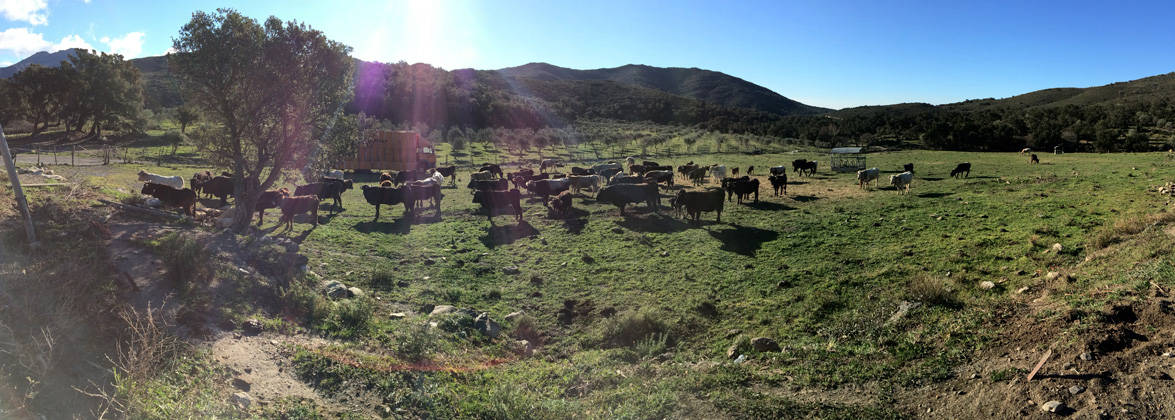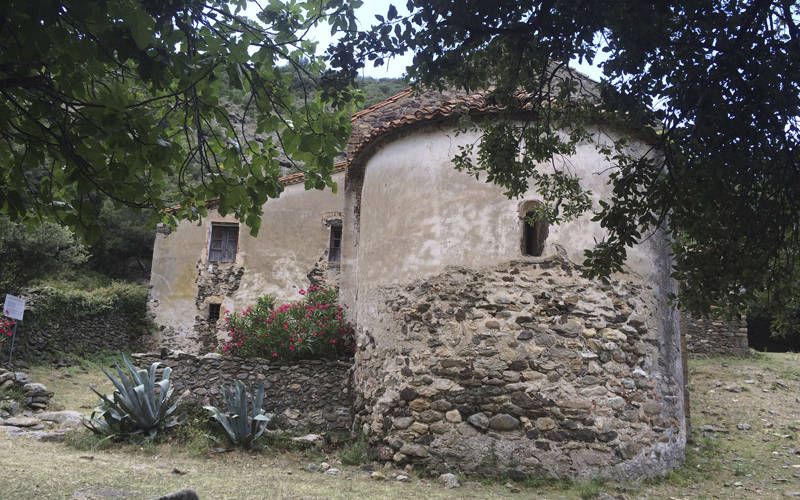The Albera House in the country
the Albera mountain range, a unique place
Scroll to discover
We use cookies to ensure that we give you the best experience on our website. If you continue using the site, we'll assume that you are happy to receive all cookies on this website. You can get more information, or know how to change the settings, in our cookie policy.
Scroll to discover
Baussitges, a corner of unimaginable natural beauty, immersed in the mountain range of Albera, is part of Albera Natural Park "Massís de l'Albera". Declared protected space in 1986, it is found in the last foothills of the Catalan Pyrenees. It is bordered by the north with France and by the east with the Mediterranean Sea. It houses diverse microhabitats, clearly differentiated due to the orography of its territory.

The presence of the Albera cattle, a native Catalan breed in danger of extinction, gives this environment a special magic. Cows graze in their forests and meadows, collaborating greatly to keep the undergrowth clean and thus reduce the risk of fires. Since 2010, the Albera Cow has been leading the most important project of Baussitges: the recovery of this peculiar breed, emblem of this farm. Directed by ABAVA (Baussitges Association of Albera Cow’s Friends), the team has achieved important improvements in the management and dissemination of the breed since its inception.
Some of the most emblematic animals of this outpost of Albera are the Mediterranean tortoise (Testudo Hermani) endangered by extinction, the golden eagle (Aquila chrysaetos) that breeds in the two valleys of Baussitges, the mountain barn (Barbus meridionalis) and a rare species of bat (Myotis alcathoe ) whose presence is indicative of the good state of conservation of these forests, since it only lives in old trees.
Other elements of interest in this mountain range reflect distant histories of human settlements: dolmens, menhirs, Romanesque churches, Roman roads and legendary castles dot the landscape of Albera mountains.

Located in the municipality of Espolla, region of Alt Empordà (Girona), the property is framed between the following coordinates:
It has a total of 2225.30 ha in the southern slope of the Albera massif. Limits:
Located between 250 m and 1000 m of the highest peaks, it enjoys a typical Mediterranean climate. Temperatures range between 35 ° C in summer and -5 ° in winter. The typical wind of the area, called Tramontana, is strong, cold and dry. In winter it can blow for more than a week, with gusts up to 120 km/h.
Once we enter the farm, dirt roads for prepared vehicles lead us through century-old forests and crystal clear rivers to discover the different farmhouses, legendary forests, Romanesque churches, among other secrets.
Two main valleys form Baussitges: the Orlina Valley and the Ribera de Freixa Valley. Baussitges, like all the Albera mountains, presents an amazing diversity of natural systems in quite a limited space.
The Freixa Valley is characterized by typical Mediterranean vegetation, with centennial cork oaks that still today are exploited and very dense forests called “mosqueres” where the Albera Cow finds refuge against the flies.
The Orlina Valley, which is much more humid and cool, is characterized by typically Atlantic vegetation, with the presence of maple forests very rare in Catalonia, oak forests in an advanced state of maturity and beech forest at the heights.
In the moments of its maximum splendor, Baussitges used to have eight inhabited farms. Today only two of them have been restored and only one is permanently inhabited.
At the entrance of the farm we find the Mas Corbera, nerve center of the farm, where the main facilities for the care of one of the herds of the Albera Cow are situated storage of work vehicles and animal food. In the same valley, 2 km upriver, we find the Mas Freixa, a point on the Roman road Heraclea, route of communication between Ampurias and Elna. At the head of the same valley, we find the Mas de la Llosa, formerly called Mas Freixenet.
From the Mas Corbera we can head for Orlina Valley passing by the Puig Balaguer, where we find five more houses, currently uninhabited and in ruins. All retain traces of their former settlers. Their deterioration is fast and sad.
Two chapels located in the Orlina valley, the preromanic hermitage of Sant Martí de Baussitges, patron of the walkers, and the Romanesque chapel of San Genís d'Esprac, patron of Espolla, served as a place of religious worship to the inhabitants of these mountains well into the twentieth century.
The hermitage of Sant Martí de Baussitges was restored in the 90’s, a restoration that had no consideration with the old walls that delimited the cemetery located around it.
The chapel of Sant Genis d'Esprac is visited every year on the day when the pilgrimage of Sant Genís is celebrated by the locals. A popular paella, celebrating a mass and the songs of the choir of Espolla exchange the usual silence of this beautiful place for a day of relax and enjoyment of all the visitors. The chapel needs fixtures on its roof, somewhat deteriorated by inclement weather and with incipient water seeps. It is planned to hold several concerts to raise funds and carry out such works in the near future.

The objective in Baussitges is to develop various sustainable activities that would allow giving new life to these valleys, always respecting the magic of the place. The safeguarding of the Albera cattle breed, the care of the ecological olive grove, incipient tourism and other projects that are to come, will gradually recover and reveal the great cultural and natural heritage kept for centuries in these lands.